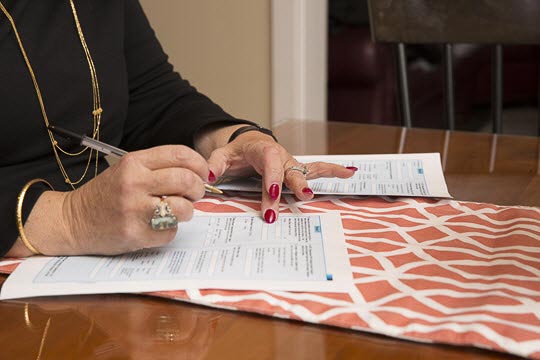As the legal fight over the decision to add a citizenship question to the 2020 census, census workers, politicians and others are preparing for a difficult process regardless of the question's inclusion.
"There's a hyper-awareness about the census, which in some ways is a good thing because people are thinking about it," said Cathy Lacy, regional director for the U.S. Census Bureau at a panel discussion as part of the 2018 Texas Tribune Festival. Former census officials, researchers and others have raised a range of concerns about the upcoming count that helps determine political representation and critical social services funding. In addition to concerns about underfunding, many worry that the fear caused by a citizenship question will lead to an undercount.
"It does make our job more challenging," said Lacy. "We've actually been out working in the community earlier than we did last census."
The potential for an undercount could be particularly high in places like Texas, with large estimated undocumented populations. "There's a great deal of concern," said Steve Murdock, a former director of the Census Bureau and a former state demographer as well as a professor at Rice University. "People are not going to go and answer the census when they feel like it could cause them to end up being deported. At the same time they're going to be there," he added, "and using services...It has a tremendous effect on how much money you're going to get for various programs if you're a city or a county."
Recognizing that the proposal to include the question has already created a large amount of concern and fear, Lacy said the census has been reaching out to communities, including the Texas border region, in an effort to reach more people in areas that have been traditionally hard to reach. "We were down there talking to some of the communities that felt they were undercounted," she said.
Reflecting on some of the regional challenges particular to the region, César Blanco, state representative for the El Paso area said, "We’ve got a lot of colonias that are hard to count, addresses are hard to find, homes are dispersed. Then you have the language barrier as well. So already it's difficult to count these communities. Add another layer of fear, it’s going to be really hard to get into these communities and make an accurate count.”
Referencing both national and state policies like family separation, Texas' so-called "show me your papers" law and travel bans, Blanco said, "the community looks at what this administration has done...you’re not going to have any confidence or trust for what could potentially happen."
The struggle to accurately count all residents won't just impact those who are fearful to respond because of their citizenship status. "The reality is that an undercount hurts all of Texas," said Michael Li, senior counsel for the Brennan Center’s Democracy Program. Due to the state's rapid growth, Texas is projected to gain three to four additional congressional seats but an undercount could put that at risk. It could also limit the funds available for things like health care, low-income housing and other services.
"Extra engagement is really important this census," explained Li, "even if there isn’t a citizenship question." For the first time, he said, "the census will be mostly online" and with the consistent and now increased underfunding, he added, "we can't count on the government filling all of this.”
Indeed, several states, including California, have set aside funds to boost census collection efforts. "We’re seeing states throughout the country putting a budget behind the census count," said Blanco, "we can do the same.” As the state legislature prepares for another session, Blanco said he will request funds in the budget. If that doesn't work, he said, he will submit a budget rider. And, he said, "if that doesn’t work, I'm going to file legislation to authorize the state to create a complete count committee." He has tried to argue that, though the rhetoric around the citizenship question has sometimes fallen along partisan lines, the risk of an undercount should be a concern to all Texans. "This is about our fair share and that’s the argument," said Blanco.
In addition to the funding challenges and the ongoing legal fight over the citizenship question, the census has also seen declining response rates for its surveys.
"We have a very challenging job ahead of us," said Lacy, one of six regional directors for the Census Bureau. "The only thing we can do is to work with that local community to build that trust.”

